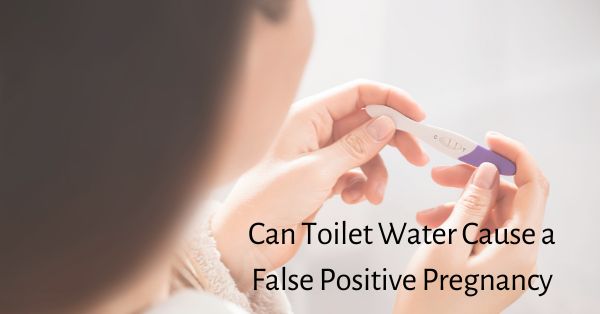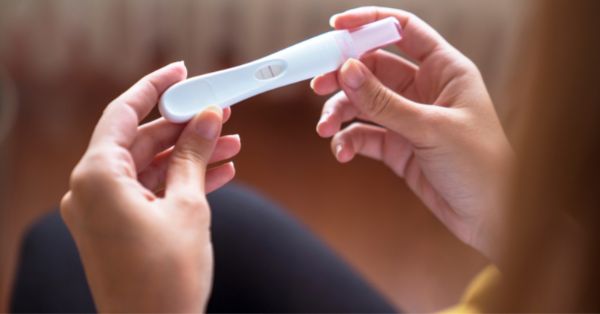Did you miss your periods recently? Are you feeling all signs of pregnancy and can’t wait to confirm? No matter the reason, I understand how bitter-sweet the experience is for any woman.
If you just bought a pregnancy test kit and you’re sitting in your office anxiously wondering how to do it, it’s okay. You can take the test anytime during the day. Some kits recommend peeing on the tip, while others insist on collecting the urine in a container before dipping the strip.
If you forgot the collection container, what should you do? You may wonder, “how about dipping my test trip into the toilet bowl?” Can toilet water cause a false positive pregnancy?
Let’s explore different aspects of pregnancy testing, the kit’s accuracy, and helpful tips.

So Can Toilet Water Cause a False Positive Pregnancy Test?
Yes, toilet water can cause a false positive pregnancy test. Pregnancy test kits determine your pregnancy status by establishing the presence of a pregnancy hormone (HCG) – human chorionic gonadotropin. While there’s some amount of urine in toilet water, it is diluted and may interfere with detecting HCG hormones leading to a false positive pregnancy result.
How Do Pregnancy Kits Work?

Pregnancy kits are pre-prepared chemical strips that react to detect HCG hormones in blood or urine. The hormones only develop during pregnancy. All kits have a single-line standing for a control mark. This is a symbol of quality to mean the kit is working correctly.
Each home test kit has special instructions, including a recommended waiting period. Some instruct on collecting urine in a container before dipping the reactive paper strip.
That said, can you dip a pregnancy test in the toilet? No. Aside from the diluted urine giving false results, it can be messy and may cause unnecessary infections.
The kits display test results in a couple of ways:
- It may show a + (plus) sign meaning a positive result and – (minus) to mean negative.
- Others display two lines to mean you’re pregnant and a single line for not pregnant. This is the most popular.
- Some kits show the word ‘pregnant’ or ‘not pregnant’ depending on your pregnancy status.
When using pregnancy test kits, follow all instructions written on the package for accurate results.
Best Time to Have a Pregnancy Test
While you can take a self-test anytime and anywhere, The U.S FDA suggests using the first-morning urine to improve the accuracy of results since it has a higher concentration of HCG hormones. Pregnancy test kits detect higher HCG levels quickly.
If you miss morning time, you can take the test anytime within the day, but wait for around four hours to get more concentrated urine.
Factors that Contribute to Getting a False Positive Pregnancy Result
1. Incorrect use of kits/ not following instructions- Take note of the recommended procedure, waiting period, and viability after testing.
2. Recent abortion or miscarriage- The HCG hormones secreted before abortion takes time to decline. Miscarriages also leave HCG-producing tissues in the uterus. A test carried out soon after an abortion/miscarriage could give a false positive result.
3. Particular medical conditions- Some medical conditions, including ovarian cysts, and cancer of the breast/ bladder or kidney, could increase the production of HCG in your body, giving an inaccurate result.
4. Medications- Some infertility and weight loss medications raise HCG levels in blood and urine.

Wrapping Up
Whether you’re anticipating getting pregnant or you had unprotected sex and missed your monthly periods, a pregnancy test is the wisest thing to do. The good news? You can do an at-home test in the comfort of your house. Health exchange confirms a pregnancy kit to be more than 99% accurate. For confirmation, you may visit a healthcare provider for a lab test.
The morning urine makes it easy for pregnancy kits to detect HCG hormones – often Produced after implantation. You only need to dip the reactive test strip in a container with some amount of urine. However, some people wonder about using toilet water containing some urine. Can toilet water cause a false positive pregnancy test?
Experts advise against using toilet water as the urine may be diluted with water. Look for other factors such as medications and specific medical conditions that increase HCG levels in blood/urine, causing false positive pregnancy results. If you’re unsure about your pregnancy status, consult a healthcare professional for medical advice.
More to read: